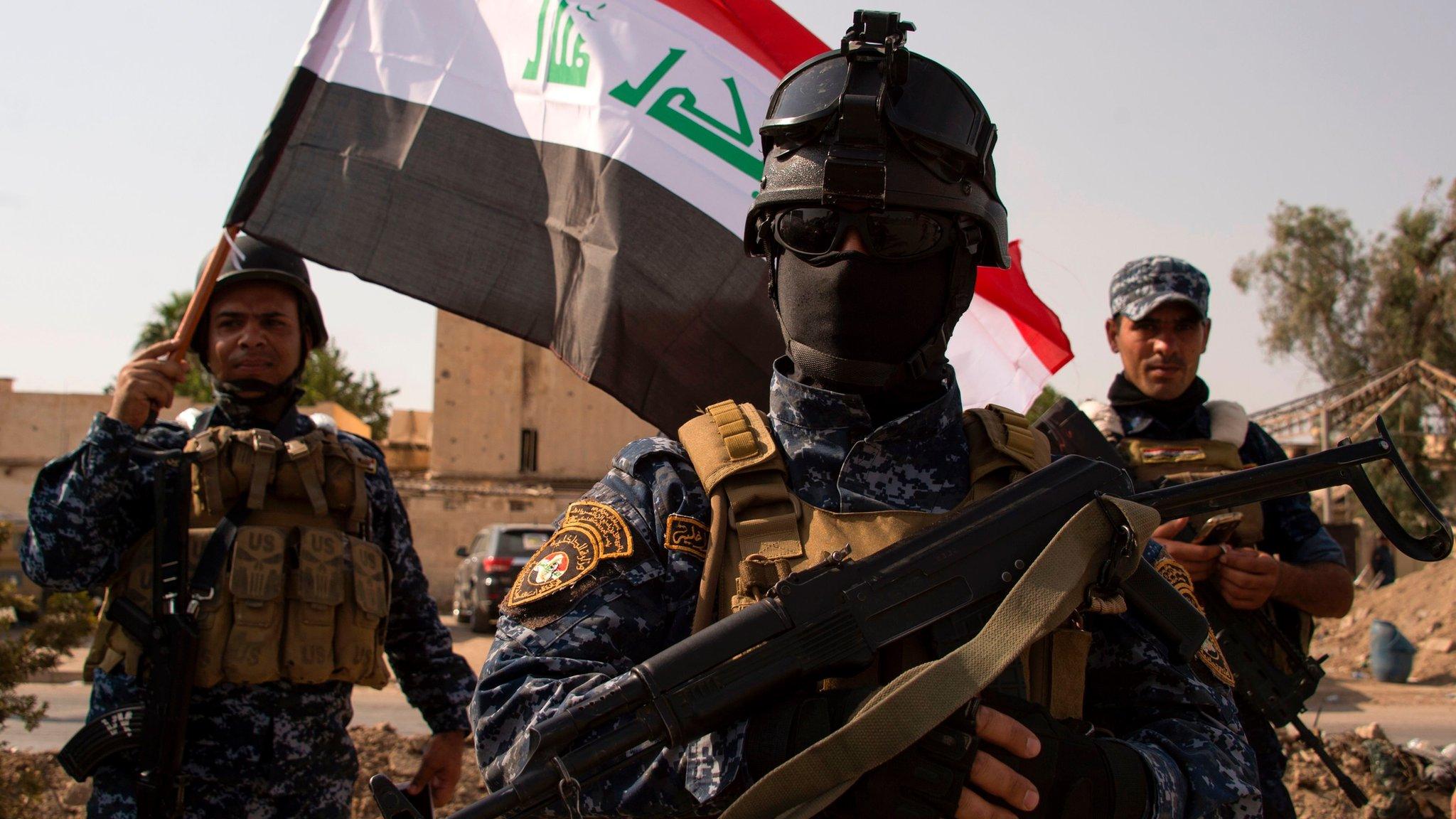Mosul: Clashes continue as troops target IS 'holdouts'
- Published
BBC Arabic's Basheer Al Zaidi says blasts are drowning out victory celebrations in Mosul
Sporadic clashes have continued in the city of Mosul, despite the Iraqi government's declaration of victory against so-called Islamic State there.
The US-led coalition supporting Iraqi forces said they were rooting out a "handful" of militants in the Old City.
The UN's humanitarian co-ordinator said hundreds of civilians were probably also still trapped in the area.
Lise Grande said they were mostly disabled people, the elderly and children separated from their families.
"Many of the people who are in that situation are too weak even to cross the front line. They have to be helped across," she added.
Iraqi Prime Minister Haider al-Abadi appeared alongside troops at a military base on Monday evening to announce the "collapse of the terrorist state of falsehood".
But on Tuesday morning, coalition spokesman Col Joe Scrocca told the BBC: "Right now, there are a handful of holdout ISIS [Islamic State group] terrorists that the Iraqi security forces are still trying to root out of the Old City."
There were also a "countless number of explosive devices that still have to be dismantled before people can start returning home," he said.
Soldiers and police officers cheered as PM Abadi joined the celebrations
The BBC's Basheer Al Zaidi in Mosul later said exchanges of gunfire and explosions were continuing to come from the Old City, and that helicopters were carrying out air strikes on IS positions.
The Associated Press said, external IS mortar shells had also landed near Iraqi troops.
Damage assessment of Mosul's Old City
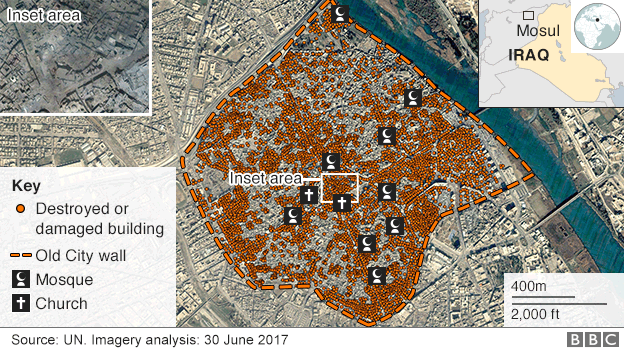
The battle for Mosul lasted almost nine months, left large areas in ruins, killed thousands of civilians and displaced more than 920,000 others.
The UN says that of the 54 residential districts in the western half of Mosul - where the Old City is located - 15 are heavily damaged and 23 moderately damaged.
Earlier on Tuesday, the human rights group Amnesty International published a report, external alleging that Iraqi and coalition forces had used unnecessarily powerful weapons in Mosul and failed to take adequate measures to protect civilians.
The BBC reports from Mosul where rescue teams are searching for survivors
Col Scrocca described the allegations as "irresponsible and an insult" to the troops who had died freeing civilians in Mosul from IS rule.
Amnesty also documented abuses by IS, including forced displacement, summary killings and using civilians as human shields.
The UN High Commissioner for Human Rights called for alleged violations by all sides to be fully investigated and those responsible to be held accountable.
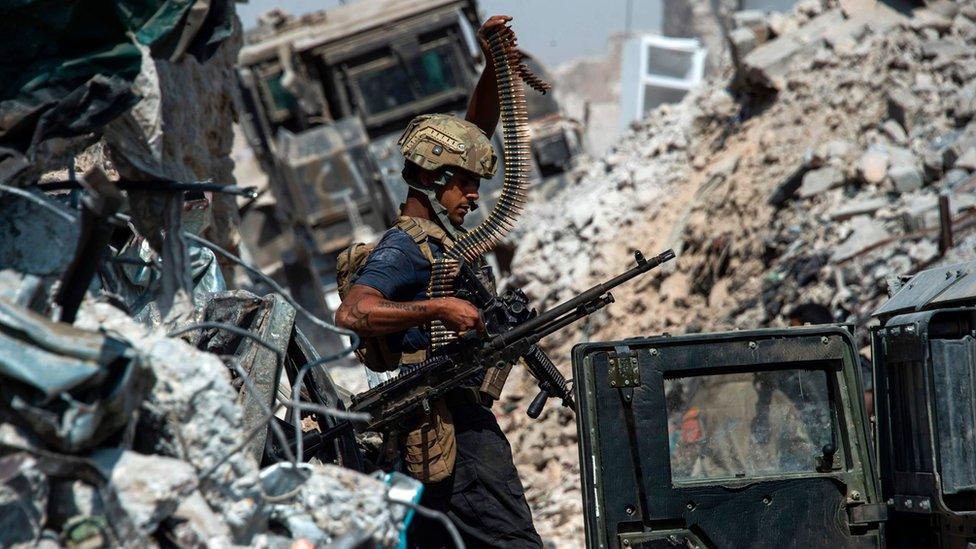
The Old City of Mosul has been devastated by weeks of fierce fighting and air strikes
Zeid Raad Al Hussein noted that air strikes were a "significant factor" in causing civilian casualties, and that in the final weeks of the battle there were reports of increased civilian deaths.
He also called on Iraqi leaders to ensure that human rights would be respected in post-conflict Mosul and to "step up efforts to create an Iraq grounded in equality and the rule of law".
The senior US commander in Iraq, Lt Col Stephen Townsend, said Iraq's Shia Arab-led government had to reach out to the Sunni Arab minority community to ensure IS did not return after being defeated militarily in the rest of the country.
"If we're to keep... ISIS 2.0 from emerging, the Iraqi government is going to have to do something pretty significantly different," he said.
"They're going to have to reach out and reconcile with the Sunni population, and make them feel like their government in Baghdad represents them."

IS seized control of much of northern and western Iraq three years ago after exploiting widespread Sunni anger at what they saw as the sectarian policies of Mr Abadi's predecessor, Nouri Maliki.
IS still controls territory in three areas of Iraq - around Hawija, 130km (80 miles) south-east of Mosul, around Tal Afar, 65km west, and from Ana to Al-Qaim in the Euphrates river valley, 250km to the south-west.
It also holds a string of towns along the Euphrates in Syria, including Albu Kamal and Mayadin, but its stronghold of Raqqa is besieged by US-backed fighters.
- Published11 July 2017
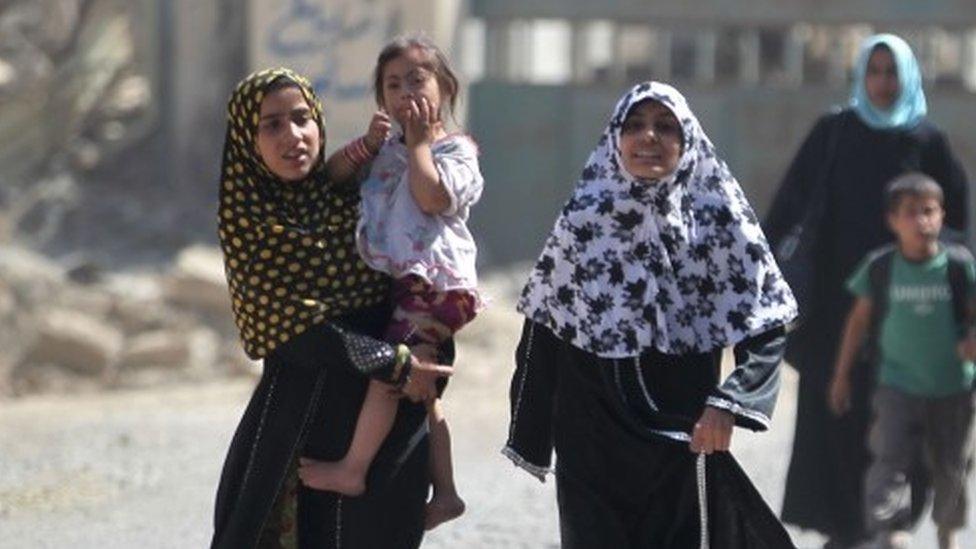
- Published25 March 2017
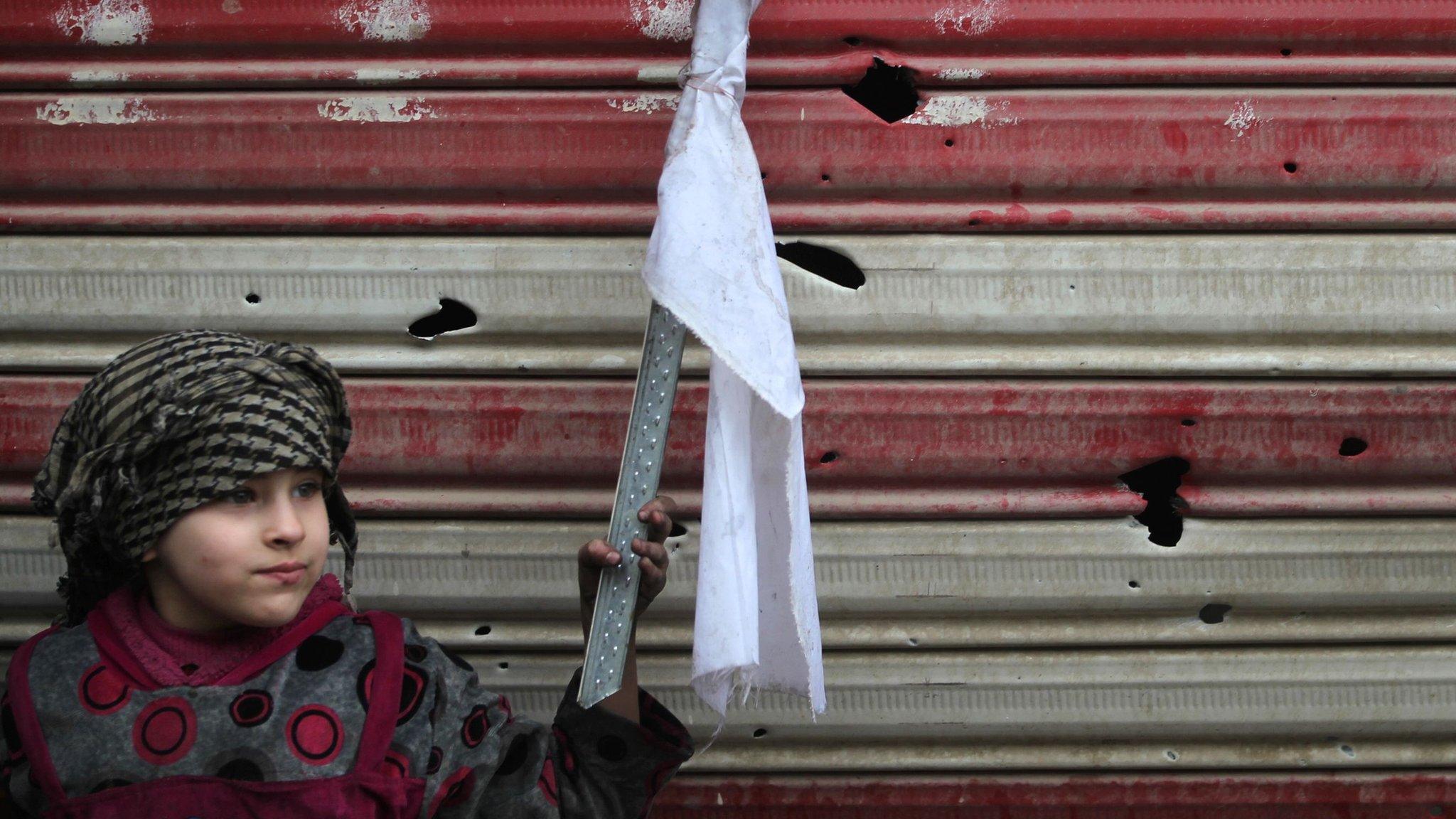
- Published10 July 2017
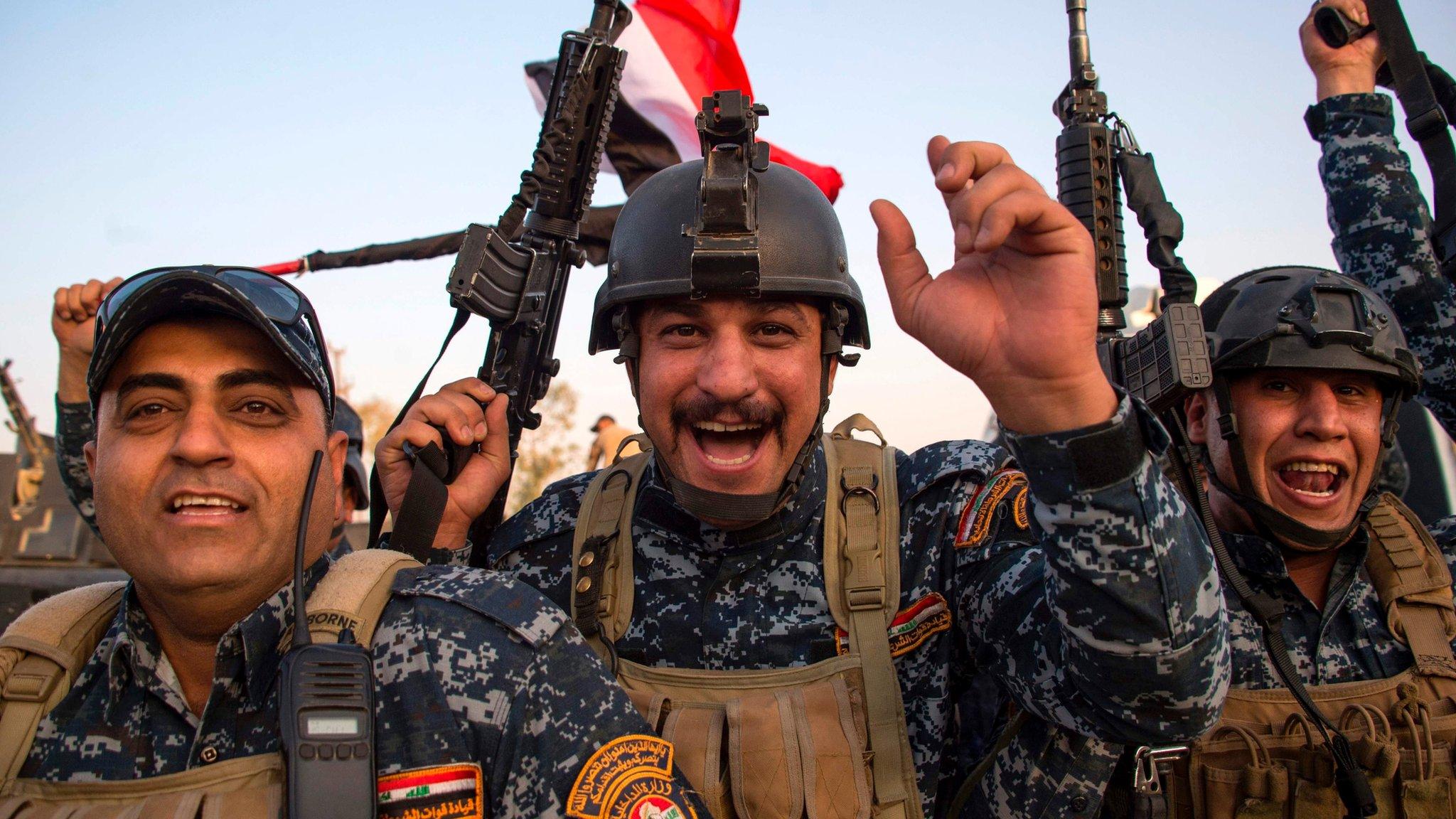
- Published10 July 2017
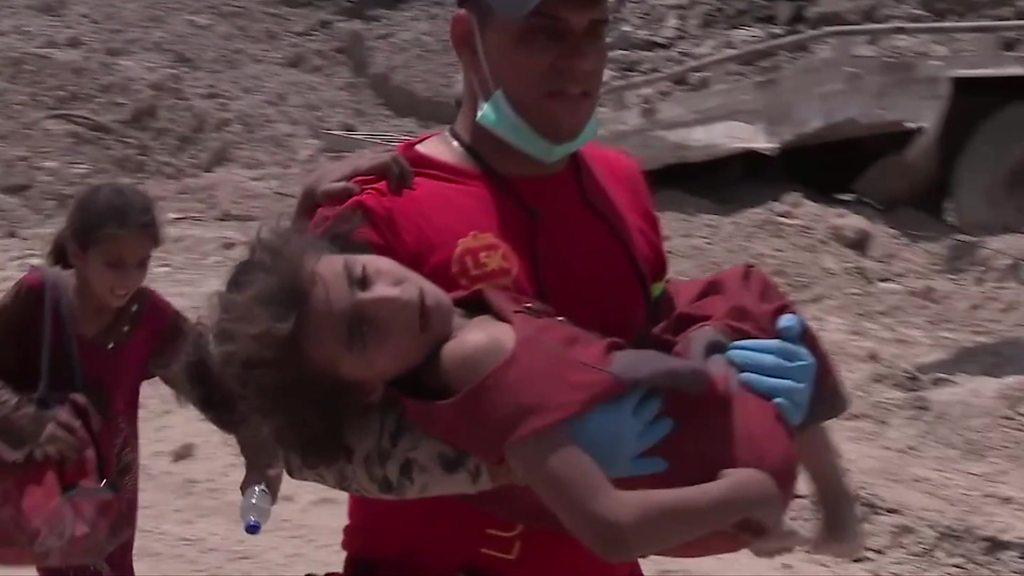
- Published10 July 2017
